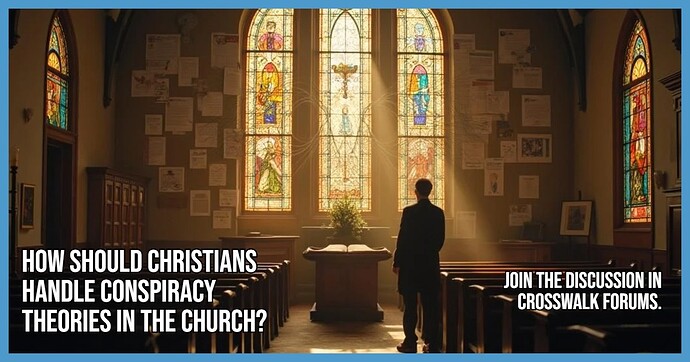How Should Christians Handle Conspiracy Theories in the Church?
As Christians navigate truth, deception, and discernment in a digital age, we invite your voice in Crosswalk Forums.
#ConspiracyTheories #BiblicalDiscernment #christianforums #crosswalkforums #forums #crosswalk #faithcommunity #faithforums
From flat earth theories to secret global cabals, conspiracy thinking has made its way from the fringes into the pews. Some believers see these theories as harmless speculation—or even spiritual insight—while others warn they distract from the gospel, breed mistrust, and damage Christian witness.
But what should a faithful response look like? The Bible calls us to be both wise and innocent (Matthew 10:16), to test everything (1 Thessalonians 5:21), and to avoid “godless chatter” (2 Timothy 2:16). Yet in a world filled with misinformation, how do we discern what’s truly dangerous from what’s just different? What happens when conspiracy theories split churches, strain relationships, or undermine leaders?
This isn’t just a cultural issue—it’s a discipleship issue. How we handle truth, authority, and fear reflects what we really believe about God.
Have you seen conspiracy thinking affect your faith community?
How can we be discerning without becoming divisive?
“Have nothing to do with foolish, ignorant controversies; you know that they breed quarrels.” – 2 Timothy 2:23
Read more about how to respond biblically and wisely:
